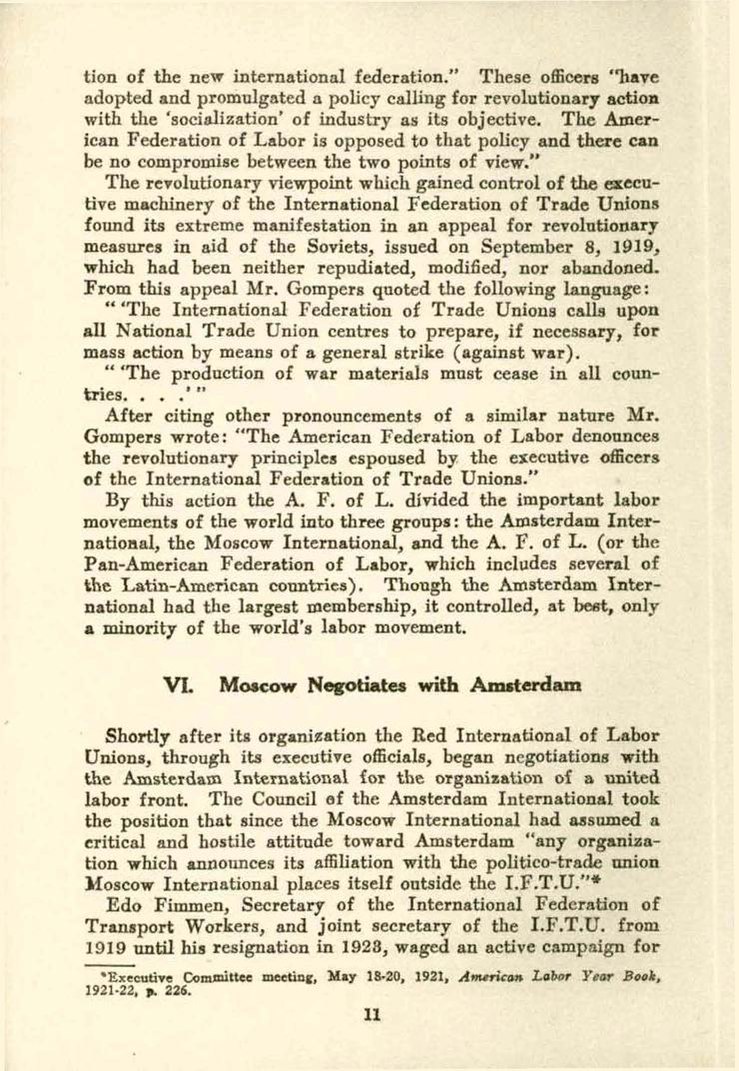tion of the new international federation." These officers "have adopted and promulgated a policy calling for revolutionary action with the 'socialization' of industry as its objective. The American Federation of Labor is opposed to that policy and there can be no compromise between the two points of view."
The revolutionary viewpoint which gained control of the executive machinery of the International Federation of Trade Unions found its extreme manifestation in an appeal for revolutionary measures in aid of the Soviets, issued on September 8, 1919, which had been neither repudiated, modified, nor abandoned. From this appeal Mr. Gompers quoted the following language:
"The International Federation of Trade Unions calls upon all National Trade Union centres to prepare, if necessary, for mass action by means of a general strike (against war).
"'The production of war materials must cease in all countries. …'"
After citing other pronouncements of a similar nature Mr. Gompers wrote: "The American Federation of Labor denounces the revolutionary principles espoused by the executive officers of the International Federation of Trade Unions."
By this action the A. F. of L. divided the important labor movements of the world into three groups: the Amsterdam International, the Moscow International, and the A. F. of L. (or the Pan-American Federation of Labor, which includes several of the Latin-American countries). Though the Amsterdam International had the largest membership, it controlled, at best, only a minority of the world's labor movement.
VI. Moscow Negotiates with Amsterdam
Shortly after its organization the Red International of Labor Unions, through its executive officials, began negotiations with the Amsterdam International for the organization of a united labor front. The Council of the Amsterdam International took the position that since the Moscow International had assumed a critical and hostile attitude toward Amsterdam "any organization which announces its affiliation with the politico-trade union Moscow International places itself outside the I.F.T.U."[1]
Edo Fimmen, Secretary of the International Federation of Transport Workers, and joint secretary of the I.F.T.U. from 1919 until his resignation in 1923, waged an active campaign for
- ↑ Executive Committee meeting, May 18–20, 1921, American Labor Year Book, 1921–22, p. 226.
11
